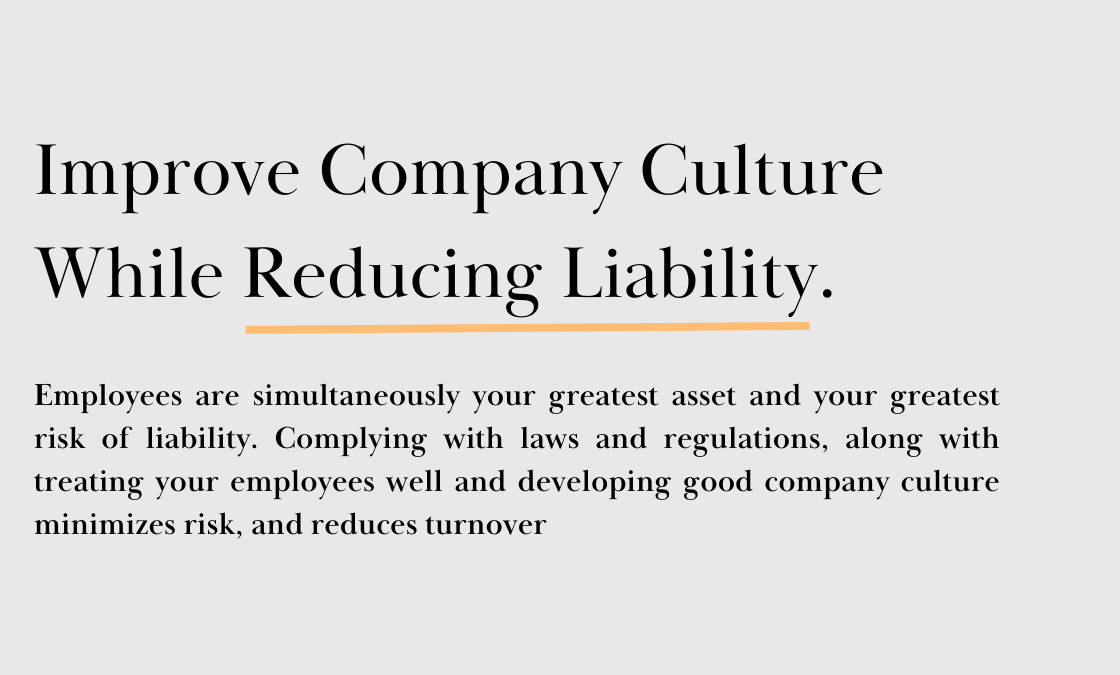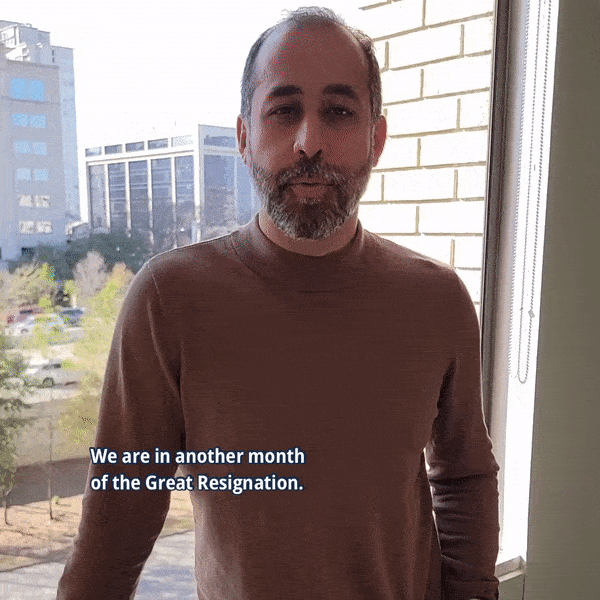High-pressure sales tactics are nothing new in corporate America. Oftentimes it seems that businesses will do anything to make a quick buck. But when the economy is less than robust, the need to make up for lagging sales can lead desperate companies into some seriously questionable waters. Without appropriate policies or oversight in place, a legitimate desire to boost sales can quickly devolve into a company-wide culture that puts pressure on employees to fraudulently increase sales and revenue.
The latest company to come under fire for fraud is none other than Wells Fargo, one of the nation’s most respected banks. On September 8, 2016, the banking giant announced that it was paying $185 million in fines to Los Angeles and federal regulators to settle charges that it created countless fake accounts in order to inflate fees.
The fraudulent scheme, first uncovered by a 2013 L.A. Times investigation, dates back possibly as far as 2009, and resulted in the creation of more than 2 million unauthorized customer accounts and the issuance of over 500,000 unauthorized credit card applications. The fraudulent activity garnered in excess of $2.6 million in fees for Wells Fargo.
The city of Los Angeles sued Wells Fargo in 2015, leading to the involvement of federal regulators. Their investigation uncovered evidence of a systemic corporate culture at the bank that induced its employees to either engage in fraud or risk losing their jobs.
The Pressure to Create False Accounts
The government’s investigation into Wells Fargo’s sales tactics revealed a pressure on employees to meet aggressive and unrealistically high sales goals that centered largely around a company-wide practice of encouraging cross-sales – for example, convincing a credit card customer to also open a savings account.
According to insiders, Wells Fargo CEO John G. Stumpf touted a mantra of “eight is great,” meaning that associates were to sell eight separate Wells Fargo products to each customer household, whether or not the customers needed those products. Not surprisingly, these high quotas proved nearly impossible for most employees to meet.
Even tougher than the quotas were the consequences for not meeting them. Former employees have reported that they ran the risk of being written up and even fired if they failed to hit their daily targets. With such dire punishments on the line, it quickly became a pure numbers game, with sales figures far outweighing customer needs.
The big problem for the sales associates was that most Wells Fargo customers didn’t want eight of the bank’s products. Therefore, in order to avoid losing their jobs, employees had to resort to creative – or, rather, fraudulent – ways of meeting their quotas. In many instances, employees would sign customers up for online banking or credit card accounts without their knowledge or permission. This went as far as creating fake email accounts for customers. Another popular tactic was to cancel accounts and then reopen them.
The exact number of false accounts that were created remains unknown. The extent of the fraud and the ultimate consequences Wells Fargo will face are continuing to play out as more investigations are unfolding.
The Need for Corporate Oversight
The Wells Fargo scandal is certainly not the first to call corporate culture into question. As ethics and corporate compliance have come under heightened scrutiny in the years since the mortgage crisis, regulators have increasingly emphasized the role that company culture plays in the actions of employees.
When management, owners, or senior executives contribute to a culture that fosters bad behavior, the problems only get worse. That’s why it’s crucial to have an independent committee or board devoted to corporate oversight. Players that are within the corporate culture, or indeed creating the culture, are typically incapable of taking a step back and seeing the culture for what it truly is. As with any business practice, an independent set of eyes is the best way to ensure that a company’s actions are above board.
According to most accounts, Wells Fargo’s CEO was fostering the culture and creating the incentives that led to the employee fraud. Had there been adequate oversight measures in place, perhaps the scandal could have been avoided.
The Aftermath
The payment of the $185 million fine was just the beginning of Wells Fargo’s troubles. In the wake of the scandal, the bank has reported that it fired 5,300 employees over the last five years for creating fake accounts. The firings however, have been viewed by some as merely an attempt to shift blame away from the higher-ups at the bank who are truly responsible for the scandal.
Indeed, two former employees of Wells Fargo have sued the bank for false termination. The lawsuit alleges that the employees were fired for failing to meet impossible quotas, and used as scapegoats to incentivize other employees to engage in fraudulent actions to meet those quotas. The plaintiffs are seeking class action status for their claims.
Stumpf has also testified before the Senate Banking Committee and issued a public apology, but it has largely fallen on deaf ears. A number of senators, along with the general public, have called for Stumpf’s resignation. They also raised the question of whether there should be clawbacks in executive compensation in the wake of the scandal.
It seems these cries may have been heard, as Wells Fargo announced on September 27, 2016 that it would be clawing back $41 million in compensation from Stumpf. The move was a nearly unprecedented one, as this is one of the only instances in which an executive has been forced to surrender compensation since the 2008 financial crisis. Experts, however, still think it’s unlikely that Stumpf will lose his job.
Stumpf’s apologies likely won’t do much to eliminate future worries for the company. Federal prosecutors in other jurisdictions have already begun independent investigations into to the bank’s improprieties.
In an effort to install some measure of damage control, Wells Fargo has announced that it will abolish all sales goals in its retail banking division as of January 1, 2017. For now, though, the sort of quotas that led to the fraud still exist within the company.
Why Damage Control Isn’t Enough
It should go without saying that damage control should be a last resort. By the time you’re being forced to clean up your company’s mess, the financial and reputational harm to your company has already been done.
The fine paid by Wells Fargo is the least of the company’s worries. It will be dealing with the fallout of the scandal for years to come. The great respect that the bank had earned in the industry is now all but gone. While the banking giant is likely not at risk of going out of business, the same may not have been true had the circumstances been different. For many smaller companies, reputation is everything, and no amount of damage control can bring you back from a scandal.
That’s why it’s critical to monitor all of your business practices on an ongoing basis. Continuous review and oversight are the only way to prevent scandals in the first place, and to correct improper practices before they become systemic.
The Takeaway
The fake accounts scandal has much broader implications than simply the consequences that Wells Fargo itself will face. Amid the fallout of fines and employee firings, the focus has shifted to the bigger institutional problems that have long plagued the banking industry and that likely led to the crisis at hand.
As many have commented, the firing of 5,300 employees points to a systemic cause behind the recent scandal, namely, the problematic incentives given to employees. When the economy struggles, companies too often find themselves scrambling to come up with new ways to make up for lost profits. In the wrong corporate culture, these creative measures can quickly cross the line into fraudulent territory.
When actions are widespread enough to justify the firing of 5,300 employees, it’s time to look beyond the actions of the individuals and instead examine the company’s culture as a whole. The odds that thousands of sales associates independently decided to commit fraud are next to zero. It’s infinitely more likely that there is something that compelled them all to do so.
When jobs are on the line, people tend to get desperate. If honest employees see their counterparts being rewarded for questionable activity while they themselves are at risk of being fired, the incentive to do what’s right starts to fade. From there, it’s a slippery slope from fudging a few numbers to becoming accepted practice to open fake accounts. A company culture that rewards fraud quickly breeds more fraud.
Some view the Wells Fargo scandal as a warning flag for companies that employ an incentive pay structure. Incentive pay is, by definition, intended to encourage employees to do more of some measurable task – the more of that task they do, the more they get paid.
Problems arise when the amount that is expected becomes unreasonable or undoable in any legitimate way. Unrealistic demands create a direct incentive for employees to meet them by any means possible. If you’re a company that offers incentive pay to its employees, it’s crucial to have a committee review the incentives to ensure that they’re reasonable. There’s a fine line between motivating employees to be productive and encouraging inflated sales figures.
Employee pressure is by no means limited to the banking industry. A recent expose involving Economy Lube found rampant systemic fraud across the company’s oil change garages, involving sales associates egregiously upselling customers who simply needed $20 oil changes. Employees came forward to blow the whistle on the company, reporting that the overarching directive was to upsell customers for services they didn’t need and charge as much as possible.
Whatever the nature of your business, it’s undeniable that corporate culture goes a long way toward dictating whether customers are treated fairly and laws are followed. The stress of keeping profits up in today’s economy is understandably great. Monitoring and oversight are key to ensuring that your employees do so in ways that are both legal and ethical, and that your business is not cultivating a culture that encourages fraud.
If you have questions about your company policies or instituting corporate oversight measures, contact Pasha Law today for more information.








![Law in the Digital Age: Exploring the Legal Intricacies of Artificial Intelligence [e323]](https://www.pashalaw.com/wp-content/uploads/2023/11/WhatsApp-Image-2023-11-21-at-13.24.49_4a326c9e-300x212.jpg)
![Unraveling the Workforce: Navigating the Aftermath of Mass Layoffs [e322]](https://www.pashalaw.com/wp-content/uploads/2023/07/Untitled-design-23-300x212.png)
![Return to the Office vs. Remote: What Can Employers Legally Enforce? [e321]](https://www.pashalaw.com/wp-content/uploads/2023/01/Pasha_LSSB_321_banner-300x212.jpg)
![Explaining the Hans Niemann Chess Lawsuit v. Magnus Carlsen [e320]](https://www.pashalaw.com/wp-content/uploads/2022/10/LAWYER-EXPLAINS-7-300x169.png)
![California v. Texas: Which is Better for Business? [313]](https://www.pashalaw.com/wp-content/uploads/2021/07/Pasha_LSSB_CaliforniaVSTexas-300x212.jpg)
![Buyers vs. Sellers: Negotiating Mergers & Acquisitions [e319]](https://www.pashalaw.com/wp-content/uploads/2022/06/Pasha_LSSB_BuyersVsSellers_banner-300x212.jpg)
![Employers vs. Employees: When Are Employment Restrictions Fair? [e318]](https://www.pashalaw.com/wp-content/uploads/2022/05/Pasha_LSSB_EmployeesVsEmployers_banner-1-300x212.jpg)
![Vaccine Mandates Supreme Court Rulings [E317]](https://www.pashalaw.com/wp-content/uploads/2022/02/WhatsApp-Image-2022-02-11-at-4.10.32-PM-300x212.jpeg)
![Business of Healthcare [e316]](https://www.pashalaw.com/wp-content/uploads/2021/11/Pasha_LSSB_BusinessofHealthcare_banner-300x212.jpg)
![Social Media and the Law [e315]](https://www.pashalaw.com/wp-content/uploads/2021/10/WhatsApp-Image-2021-10-06-at-1.43.08-PM-300x212.jpeg)
![Defining NDA Boundaries: When does it go too far? [e314]](https://www.pashalaw.com/wp-content/uploads/2021/09/Pasha_LSSB_NDA_WordPress-2-300x212.jpg)
![More Than a Mistake: Business Blunders to Avoid [312] Top Five Business Blunders](https://www.pashalaw.com/wp-content/uploads/2021/06/Pasha_LSSB_Blunders_WP-1-300x212.jpg)
![Is There a Right Way to Fire an Employee? We Ask the Experts [311]](https://www.pashalaw.com/wp-content/uploads/2021/02/Pasha_LSSB_FireAnEmployee_Website-300x200.jpg)
![The New Frontier: Navigating Business Law During a Pandemic [310]](https://www.pashalaw.com/wp-content/uploads/2020/12/Pasha_LSSB_Epidsode308_Covid_Web-1-300x200.jpg)
![Wrap Up | Behind the Buy [8/8] [309]](https://www.pashalaw.com/wp-content/uploads/2020/11/Pasha_BehindTheBuy_Episode8-300x200.jpg)
![Is it all over? | Behind the Buy [7/8] [308]](https://www.pashalaw.com/wp-content/uploads/2020/09/iStock-1153248856-overlay-scaled-300x200.jpg)
![Fight for Your [Trademark] Rights | Behind the Buy [6/8] [307]](https://www.pashalaw.com/wp-content/uploads/2020/07/Fight-for-your-trademark-right-300x200.jpg)
![They Let It Slip | Behind the Buy [5/8] [306]](https://www.pashalaw.com/wp-content/uploads/2020/06/Behind-the-buy-they-let-it-slip-300x200.jpg)
![Mo’ Investigation Mo’ Problems | Behind the Buy [4/8] [305]](https://www.pashalaw.com/wp-content/uploads/2020/05/interrobang-1-scaled-300x200.jpg)
![Broker or Joker | Behind the Buy [3/8] [304] Behind the buy - Broker or Joker](https://www.pashalaw.com/wp-content/uploads/2020/04/Joker-or-Broker-1-300x185.jpg)
![Intentions Are Nothing Without a Signature | Behind the Buy [2/8] [303]](https://www.pashalaw.com/wp-content/uploads/2020/04/intentions-are-nothing-without-a-signature-300x185.jpg)
![From First Steps to Final Signatures | Behind the Buy [1/8] [302]](https://www.pashalaw.com/wp-content/uploads/2020/04/first-steps-to-final-signatures-300x185.jpg)
![The Dark-side of GrubHub’s (and others’) Relationship with Restaurants [e301]](https://www.pashalaw.com/wp-content/uploads/2015/04/When-Competition-Goes-Too-Far-Ice-Cream-Truck-Edition-300x201.jpg)
![Ultimate Legal Breakdown of Internet Law & the Subscription Business Model [e300]](https://www.pashalaw.com/wp-content/uploads/2019/05/Ultimate-Legal-Breakdown-of-Internet-Law-the-Subscription-Business-Model-300x196.jpg)
![Why the Business Buying Process is Like a Wedding?: A Legal Guide [e299]](https://www.pashalaw.com/wp-content/uploads/2019/03/futura-300x169.jpg)
![Will Crowdfunding and General Solicitation Change How Companies Raise Capital? [e298]](https://www.pashalaw.com/wp-content/uploads/2018/11/Will-Crowdfunding-and-General-Solicitation-Change-How-Companies-Raise-Capital-300x159.jpg)
![Pirates, Pilots, and Passwords: Flight Sim Labs Navigates Legal Issues (w/ Marc Hoag as Guest) [e297]](https://www.pashalaw.com/wp-content/uploads/2018/07/flight-sim-labs-300x159.jpg)
![Facebook, Zuckerberg, and the Data Privacy Dilemma [e296] User data, data breach photo by Pete Souza)](https://www.pashalaw.com/wp-content/uploads/2018/04/data-300x159.jpg)
![What To Do When Your Business Is Raided By ICE [e295] I.C.E Raids business](https://www.pashalaw.com/wp-content/uploads/2018/02/ice-cover-300x159.jpg)
![General Contractors & Subcontractors in California – What you need to know [e294]](https://www.pashalaw.com/wp-content/uploads/2018/01/iStock-666960952-300x200.jpg)
![Mattress Giants v. Sleepoplis: The War On Getting You To Bed [e293]](https://www.pashalaw.com/wp-content/uploads/2017/12/sleepopolis-300x159.jpg)
![The Harassment Watershed [e292]](https://www.pashalaw.com/wp-content/uploads/2017/12/me-2-300x219.jpg)
![Investing and Immigrating to the United States: The EB-5 Green Card [e291]](https://www.pashalaw.com/wp-content/uploads/2012/12/eb-5-investment-visa-program-300x159.jpg)
![Responding to a Government Requests (Inquiries, Warrants, etc.) [e290] How to respond to government requests, inquiries, warrants and investigation](https://www.pashalaw.com/wp-content/uploads/2017/10/iStock_57303576_LARGE-300x200.jpg)
![Ultimate Legal Breakdown: Employee Dress Codes [e289]](https://www.pashalaw.com/wp-content/uploads/2017/08/Ultimate-Legal-Breakdown-Template-1-300x159.jpg)
![Ultimate Legal Breakdown: Negative Online Reviews [e288]](https://www.pashalaw.com/wp-content/uploads/2017/06/Ultimate-Legal-Breakdown-Online-Reviews-1-300x159.jpg)
![Ultimate Legal Breakdown: Social Media Marketing [e287]](https://www.pashalaw.com/wp-content/uploads/2017/06/ultimate-legal-breakdown-social-media-marketing-blur-300x159.jpg)
![Ultimate Legal Breakdown: Subscription Box Businesses [e286]](https://www.pashalaw.com/wp-content/uploads/2017/03/ultimate-legal-breakdown-subscription-box-services-pasha-law-2-300x159.jpg)
![Can Companies Protect Against Foreseeable Misuse of Apps [e285]](https://www.pashalaw.com/wp-content/uploads/2017/01/iStock-505291242-300x176.jpg)
![When Using Celebrity Deaths for Brand Promotion Crosses the Line [e284]](https://www.pashalaw.com/wp-content/uploads/2017/01/celbrity-300x159.png)
![Are Employers Liable When Employees Are Accused of Racism? [e283] Racist Employee](https://www.pashalaw.com/wp-content/uploads/2016/12/Are-employers-liable-when-an-employees-are-accused-of-racism-300x159.jpg)
![How Businesses Should Handle Unpaid Bills from Clients [e282] What to do when a client won't pay.](https://www.pashalaw.com/wp-content/uploads/2016/12/How-Businesses-Should-Handle-Unpaid-Bills-to-Clients-300x159.png)
![Can Employers Implement English Only Policies Without Discriminating? [e281]](https://www.pashalaw.com/wp-content/uploads/2016/11/Can-Employers-Impliment-English-Only-Policies-Without-Discriminating-300x159.jpg)
![Why You May No Longer See Actors’ Ages on Their IMDB Page [e280]](https://www.pashalaw.com/wp-content/uploads/2016/10/IMDB-AGE2-300x159.jpg)
![Airbnb’s Discrimination Problem and How Businesses Can Relate [e279]](https://www.pashalaw.com/wp-content/uploads/2016/09/airbnb-300x159.jpg)
![What To Do When Your Amazon Account Gets Suspended [e278]](https://www.pashalaw.com/wp-content/uploads/2016/09/What-To-Do-When-Your-Amazon-Account-Gets-Suspended-1-300x200.jpg)
![How Independent Artists Reacted to Fashion Mogul Zara’s Alleged Infringement [e277]](https://www.pashalaw.com/wp-content/uploads/2016/08/How-Independent-Artists-Reacted-to-Fashion-Mogul-Zaras-Alleged-Infringement--300x159.jpg)
![Can Brave’s Ad Replacing Software Defeat Newspapers and Copyright Law? [e276]](https://www.pashalaw.com/wp-content/uploads/2016/08/Can-Braves-Ad-Replacing-Software-Defeat-Newspapers-and-Copyright-Law-300x159.jpg)
![Why The Roger Ailes Sexual Harassment Lawsuit Is Far From Normal [e275]](https://www.pashalaw.com/wp-content/uploads/2016/07/WHY-THE-ROGER-AILES-SEXUAL-HARASSMENT-LAWSUIT-IS-FAR-FROM-NORMAL-300x159.jpeg)
![How Starbucks Turned Coveted Employer to Employee Complaints [e274]](https://www.pashalaw.com/wp-content/uploads/2016/07/iStock_54169990_LARGE-300x210.jpg)
